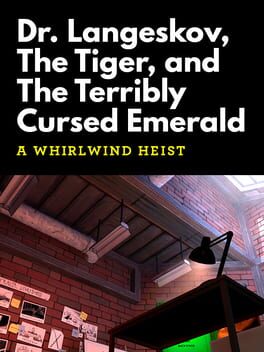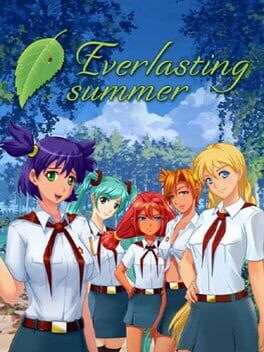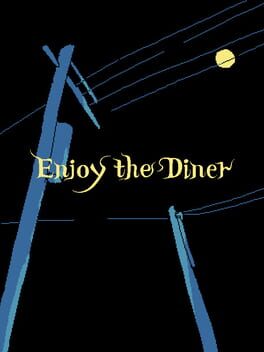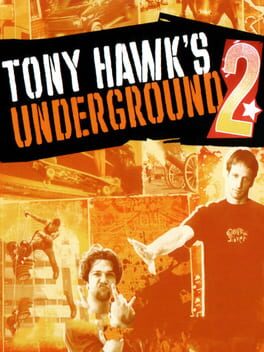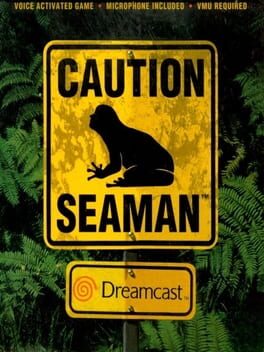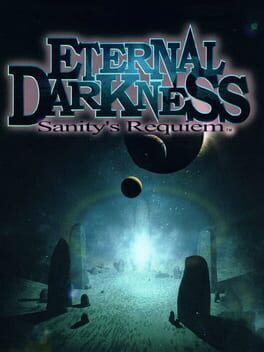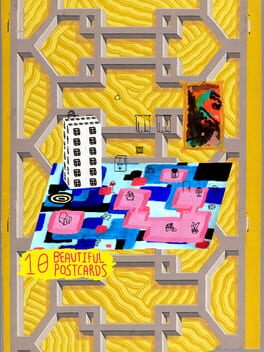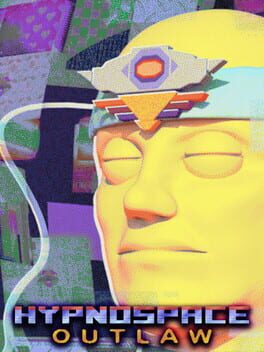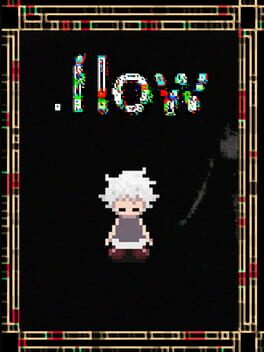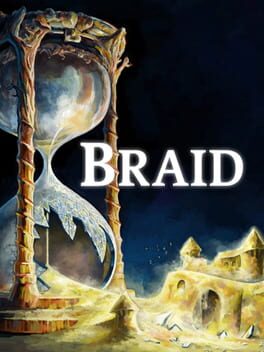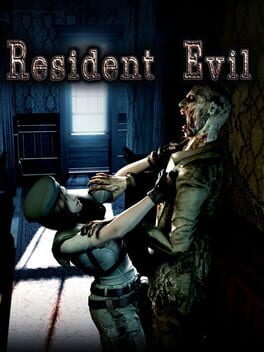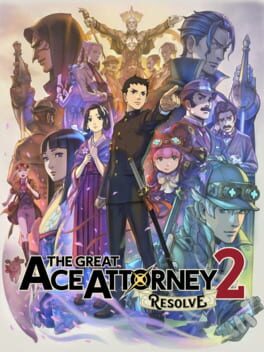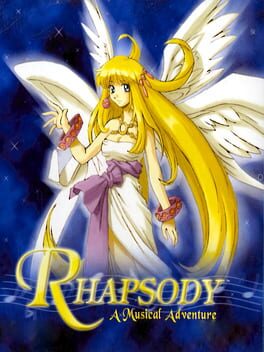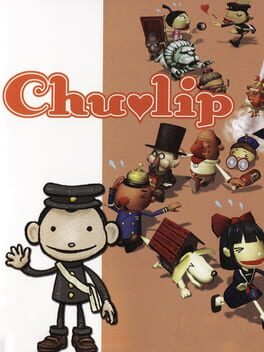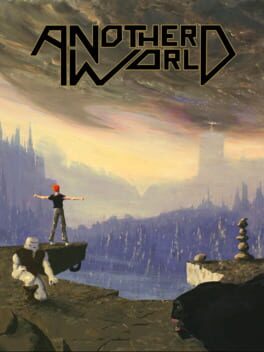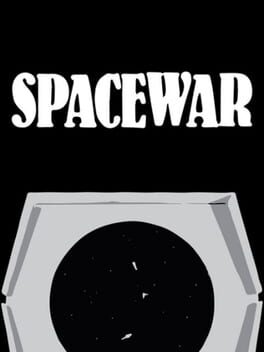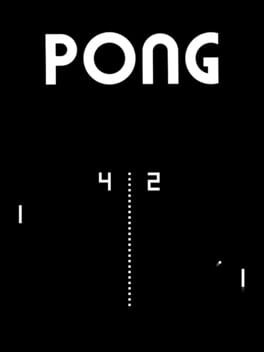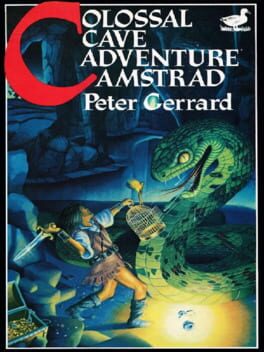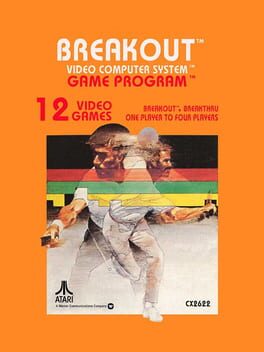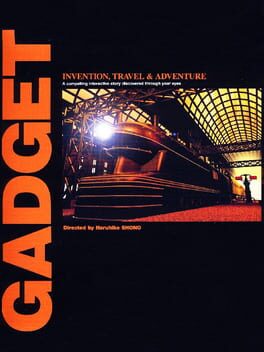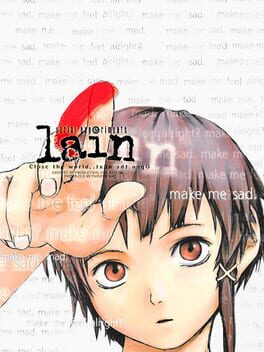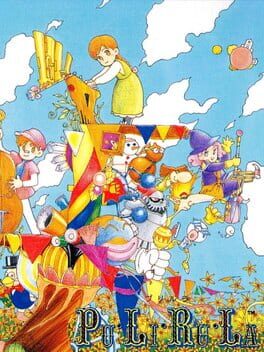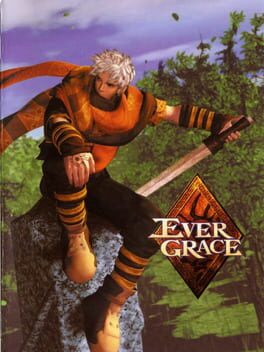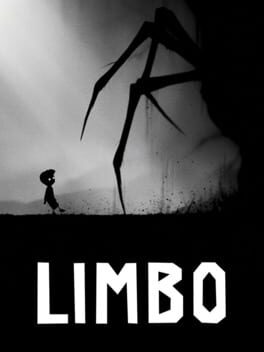UnikOffical
23 reviews liked by UnikOffical
Botany Manor
2024
I'm so glad this game came out when it did - I really, really needed it. My job makes me feel like I'm going bald from stress sometimes, and Botany Manor is the absolute best glass of wine after a long day. The puzzles are simple and keep the game from just being a total walking simulator, but are perfect at immersing the player into the environment, and falling in love with Arabella's manor. While I'm glad the puzzles add complexity to the game, I did still play Botany's Manor not too differently from a walking simulator by just walking around the house and admiring the different architecture, room decorations, and of course, the flora. There's lots of chairs to sit and enjoy the ambiance with as well... I adored it, often sitting in the chairs for longer than I originally intended and just going totally zen and letting my head go empty. It's nice, because walking around and just exploring does naturally lead to you solving a lot of the puzzles, as well.
There's no rush to beat Botany Manor, it took me around 5 hours, which for a $20 price tag I can understand not being the best deal, but for me it's something I absolutely will return to after a rough day at work, even after finishing the game, just to sit in Arabella's house and enjoy the scenary.
4/5
There's no rush to beat Botany Manor, it took me around 5 hours, which for a $20 price tag I can understand not being the best deal, but for me it's something I absolutely will return to after a rough day at work, even after finishing the game, just to sit in Arabella's house and enjoy the scenary.
4/5
Botany Manor
2024
Full review here: https://gameluster.com/botany-manor-review-a-garden-to-root-for/
There are times when I think Botany Manor asks too much of its players in terms of brainpower, and a few more hints and more easily manageable clues would have made a huge difference. However, I had an amazing time regardless learning about a litany of plants too fantastic to be real, and feeling the ultimate satisfaction of figuring out the solution and then executing it perfectly.
Botany Manor will be on Game Pass day one as well as for purchase, which is a huge get. Fans of escape room-like puzzles, gardening, and especially fans of both will no doubt fall in love with all the manor has to offer. The narrative is satisfying and paced extremely well, and I completed Botany Manor with a genuine smile on my face. And now, it is time to tend to my few real plants, and maybe try and replant those geraniums. After all, won’t it feel nice to help guide new life into this world?
There are times when I think Botany Manor asks too much of its players in terms of brainpower, and a few more hints and more easily manageable clues would have made a huge difference. However, I had an amazing time regardless learning about a litany of plants too fantastic to be real, and feeling the ultimate satisfaction of figuring out the solution and then executing it perfectly.
Botany Manor will be on Game Pass day one as well as for purchase, which is a huge get. Fans of escape room-like puzzles, gardening, and especially fans of both will no doubt fall in love with all the manor has to offer. The narrative is satisfying and paced extremely well, and I completed Botany Manor with a genuine smile on my face. And now, it is time to tend to my few real plants, and maybe try and replant those geraniums. After all, won’t it feel nice to help guide new life into this world?
The Ultimate Doom
1995
The Beginner's Guide
2015
This review contains spoilers
So, this is my favorite game of all time and I can’t talk about how much I appreciate it without spoiling it. It takes an hour and a half to complete and is only $10 on Steam, and I've seen it go down to $4 before. Please go play this one before reading, I obviously think it’s worth it. Okay, here I go:
This is probably not the game most people would consider as having great gameplay, but I’m going to make my case for this having the most interesting gameplay I’ve experienced in a game. About 95% of this game’s mechanics consist of simply walking around some levels while a narrator talks. But it’s the different ways in which the game can alter how you can walk around and use that to effect what the player is feeling and effectively communicate different messages to the player that is so damn creative. This is the game I point to whenever someone tries to say that “walking simulators aren’t real video games” because this game proves that with just the mechanic of walking through a level, you can communicate so many ideas to the player, in a way that couldn’t be done in any other medium. There are also occasional bits of dialogue choices and shooting and one puzzle that is just an incredible metaphor. This game, in an hour and a half, is bursting with so many creative ideas on how to use the medium of video games, more than any other game I can think of.
Okay, let’s get into some of the ideas this game is playing with here. First, it’s worth noting that a part of this game’s narrative is that you can’t ever actually know what the author of any given work is trying to say, unless they explicitly tell you what they’re trying to say. I highly recommend watching Innuendo Studios’ video about The Beginner’s Guide for an exploration of that idea. That being said, here’s my interpretation of the game: The game is presented as the narrator, Davey Wreden (who is also the developer), takes you through a collection of experimental games made by his friend Coda. As you get further and further into Coda’s games, the games start delving into darker ideas dealing with Coda losing his creativity and developing depression. Where the ideas used to flow so naturally to him, they’ve just stopped coming, and it’s getting harder and harder for him to keep making games. Davey begins the game so proud and inspired by Coda’s work, and in the later bits he’s understandably worried about his friend because of the messages he’s getting from his later games. While Davey shows off Coda’s work to the player, there are certain bits he’ll skip you past, or speed up, so that the player can get on with the rest of the game. Davey has an idea when playing Coda’s later games to start showing Coda’s work to people, to show Coda how much people love his work, to give him some positive feedback to keep going. Then, at the end of the game, there’s a twist, one last game that Coda makes for Davey specifically. In that game, Coda tells Davey that he doesn’t want to be friends anymore, that he was fine, and hated how Davey was projecting a negative image onto Coda himself, when he played Coda’s games; and how Coda felt violated when Davey kept showing his work to people without his permission. At this point as the player, I felt pretty dirty, like I was tricked into violating Coda’s privacy by Davey by playing this game. Afterwards, I just sat and thought about the game for a while, and realized that Coda isn’t a real person. That’s the other twist. Coda is, in my interpretation, a metaphor for the more introverted and artistic side of Davey. And after realizing that, I had to immediately play the game a second time, and suddenly everything Davey was saying took on a new meaning.
I 👏 love 👏 the 👏 puzzle 👏 in 👏 this 👏 game 👏. The way that Davey interprets the puzzle as a space between moments in your life, where you can stop and reflect for a while before moving on, but you must always, inevitably, move on, or you just get stuck in this dark place and stagnate. But we see in the house cleaning game, that Coda doesn’t agree with this. The way Coda originally made the house cleaning game, he was content to stay in the house forever, as if to say, it’s okay to find a place you’re comfortable in and stay there. Exiting the house was something that Davey added to Coda’s game. He viewed it as a flaw in the game that he was fixing. I honestly think there’s value in both of those views on the puzzle metaphor.
Another thing Davey changes in Coda’s games are the lamp posts he adds. Coda is fine letting his games be experimental, be endless. But Davey feels the need to add these lamp posts as a goal to work towards, he feels the need to influence Coda’s work and add a structure that Coda was happy without. Davey also feels the need to show Coda’s work to others. I read these as meaning that there is an internal conflict in Davey, between a part of himself which needs external validation, and needs to make games in a way that other people will like; while Coda, his more introverted self, is more happy with making games just for himself, as a way to have some introspection and explore ideas without having to worry about what other people think of it. Coda doesn’t want to give his games away, his games are for him. I recommend clicking this link and reading Davey Wreden’s blog post “Game of the Year” in which he talks about his depression during the time when The Stanley Parable was winning awards, and how he felt like he lost a sense of ownership when he released that game. It sheds a light on the internal conflict of this game. Here’s the link: http://web.archive.org/.../http://www.galactic-cafe.com/
In Coda’s later games, the machine which allows him to make games stops working. It’s revealed that the machine is Coda, and it’s put on trial for letting down the public. This, to me, is clearly Davey saying that he’s losing touch with the part of himself that is willing to take creative risks, and make personal works of art that are meaningful to himself first and foremost. And he feels a sense of shame for letting down people around him when he fails to create like this. The last puzzle in the game is my favorite moment in any game. It’s the moment after Davey gets Coda’s message about how he doesn’t want to be friends anymore, and he wishes that Davey would stop altering his work, and stop violating his privacy. In that puzzle room, there is no second lever to exit the puzzle with. It forces Davey to stay in the room, and contemplate what he’s done. And in that room, Davey begs for Coda to come back, and give him the sense of wholeness that came to Coda so effortlessly. Stuck in this dark room with no escape, Davey says that he’s fading, and just wants to know that it will be okay. Davey feels that he’s lost touch with this part of himself, and this whole game is him expressing his desire to reestablish a connection with that part of himself. And then the brilliantly executed epilogue, walking through Coda’s works, and moving forward through other levels with nothing to interact with, and no more narration, just left to digest everything that just happened. And then you walk into this pillar of light and get the final shot of the game, floating upwards and looking down on this massive labyrinth that consumes everything, and makes you feel so small in comparison. Makes you contemplate the enormous complexities of a person that you could never see before, and how small we can feel when confronted with that.
This is probably not the game most people would consider as having great gameplay, but I’m going to make my case for this having the most interesting gameplay I’ve experienced in a game. About 95% of this game’s mechanics consist of simply walking around some levels while a narrator talks. But it’s the different ways in which the game can alter how you can walk around and use that to effect what the player is feeling and effectively communicate different messages to the player that is so damn creative. This is the game I point to whenever someone tries to say that “walking simulators aren’t real video games” because this game proves that with just the mechanic of walking through a level, you can communicate so many ideas to the player, in a way that couldn’t be done in any other medium. There are also occasional bits of dialogue choices and shooting and one puzzle that is just an incredible metaphor. This game, in an hour and a half, is bursting with so many creative ideas on how to use the medium of video games, more than any other game I can think of.
Okay, let’s get into some of the ideas this game is playing with here. First, it’s worth noting that a part of this game’s narrative is that you can’t ever actually know what the author of any given work is trying to say, unless they explicitly tell you what they’re trying to say. I highly recommend watching Innuendo Studios’ video about The Beginner’s Guide for an exploration of that idea. That being said, here’s my interpretation of the game: The game is presented as the narrator, Davey Wreden (who is also the developer), takes you through a collection of experimental games made by his friend Coda. As you get further and further into Coda’s games, the games start delving into darker ideas dealing with Coda losing his creativity and developing depression. Where the ideas used to flow so naturally to him, they’ve just stopped coming, and it’s getting harder and harder for him to keep making games. Davey begins the game so proud and inspired by Coda’s work, and in the later bits he’s understandably worried about his friend because of the messages he’s getting from his later games. While Davey shows off Coda’s work to the player, there are certain bits he’ll skip you past, or speed up, so that the player can get on with the rest of the game. Davey has an idea when playing Coda’s later games to start showing Coda’s work to people, to show Coda how much people love his work, to give him some positive feedback to keep going. Then, at the end of the game, there’s a twist, one last game that Coda makes for Davey specifically. In that game, Coda tells Davey that he doesn’t want to be friends anymore, that he was fine, and hated how Davey was projecting a negative image onto Coda himself, when he played Coda’s games; and how Coda felt violated when Davey kept showing his work to people without his permission. At this point as the player, I felt pretty dirty, like I was tricked into violating Coda’s privacy by Davey by playing this game. Afterwards, I just sat and thought about the game for a while, and realized that Coda isn’t a real person. That’s the other twist. Coda is, in my interpretation, a metaphor for the more introverted and artistic side of Davey. And after realizing that, I had to immediately play the game a second time, and suddenly everything Davey was saying took on a new meaning.
I 👏 love 👏 the 👏 puzzle 👏 in 👏 this 👏 game 👏. The way that Davey interprets the puzzle as a space between moments in your life, where you can stop and reflect for a while before moving on, but you must always, inevitably, move on, or you just get stuck in this dark place and stagnate. But we see in the house cleaning game, that Coda doesn’t agree with this. The way Coda originally made the house cleaning game, he was content to stay in the house forever, as if to say, it’s okay to find a place you’re comfortable in and stay there. Exiting the house was something that Davey added to Coda’s game. He viewed it as a flaw in the game that he was fixing. I honestly think there’s value in both of those views on the puzzle metaphor.
Another thing Davey changes in Coda’s games are the lamp posts he adds. Coda is fine letting his games be experimental, be endless. But Davey feels the need to add these lamp posts as a goal to work towards, he feels the need to influence Coda’s work and add a structure that Coda was happy without. Davey also feels the need to show Coda’s work to others. I read these as meaning that there is an internal conflict in Davey, between a part of himself which needs external validation, and needs to make games in a way that other people will like; while Coda, his more introverted self, is more happy with making games just for himself, as a way to have some introspection and explore ideas without having to worry about what other people think of it. Coda doesn’t want to give his games away, his games are for him. I recommend clicking this link and reading Davey Wreden’s blog post “Game of the Year” in which he talks about his depression during the time when The Stanley Parable was winning awards, and how he felt like he lost a sense of ownership when he released that game. It sheds a light on the internal conflict of this game. Here’s the link: http://web.archive.org/.../http://www.galactic-cafe.com/
In Coda’s later games, the machine which allows him to make games stops working. It’s revealed that the machine is Coda, and it’s put on trial for letting down the public. This, to me, is clearly Davey saying that he’s losing touch with the part of himself that is willing to take creative risks, and make personal works of art that are meaningful to himself first and foremost. And he feels a sense of shame for letting down people around him when he fails to create like this. The last puzzle in the game is my favorite moment in any game. It’s the moment after Davey gets Coda’s message about how he doesn’t want to be friends anymore, and he wishes that Davey would stop altering his work, and stop violating his privacy. In that puzzle room, there is no second lever to exit the puzzle with. It forces Davey to stay in the room, and contemplate what he’s done. And in that room, Davey begs for Coda to come back, and give him the sense of wholeness that came to Coda so effortlessly. Stuck in this dark room with no escape, Davey says that he’s fading, and just wants to know that it will be okay. Davey feels that he’s lost touch with this part of himself, and this whole game is him expressing his desire to reestablish a connection with that part of himself. And then the brilliantly executed epilogue, walking through Coda’s works, and moving forward through other levels with nothing to interact with, and no more narration, just left to digest everything that just happened. And then you walk into this pillar of light and get the final shot of the game, floating upwards and looking down on this massive labyrinth that consumes everything, and makes you feel so small in comparison. Makes you contemplate the enormous complexities of a person that you could never see before, and how small we can feel when confronted with that.
The Beginner's Guide
2015
This review contains spoilers
Recommended by gomit as part of this list.
When I was in middle school, I pirated a copy of RPG Maker VX Ace and said "I'm going to make a video game." My very first project was a joke game based on those MLG memes (the air horns, the crosshairs, "MOM GET THE CAMERA!", the works) and it was rough. Even in the limited, easy-to-use confines of RPG Maker, I could barely figure out how to program a map transition, or even set up a basic variable flag. I managed to program one boss fight and gave up. Over the years, ideas would come and go, only ever ending up half-baked ideas that were excuses to try something new, like writing music or learning digital art. An isometric Bully-clone. A Persona 3-style dungeon crawler. The mandatory Quirky Earthbound-Inspired RPG that all indie developers make at some point. A cosmic-horror JRPG with anime girls. All of these ideas living in the margins of sketchbooks or as slap-dash digital sprites drawn with my shitty dollar store mouse. It would take me until I was 20 (7 whole years from the day I pirated that copy of VX Ace!) to actually publish my first completed project. I would feign to call myself a "game developer", but I bring this up because I think it's a substantial part of my life that colors my view of The Beginner's Guide.
The Beginner's Guide is an hour long interactive experience that serves as a commentary on both artist and audience, and the relationship between the two. Before the twist revealed in the second to last chapter of the game, the use of this fictional developer (Coda), their oeuvre, and the Director's Commentary provided by the psuedo-fictional caricature of The Beginner Guide's own creator (Wreden) weave this tale of artistic expression and burnout through the medium most infamous for how it chews up and spits out its creators: video games. The arc we witness of finding the joy in creation, fixating on some kind of platonic ideal for your work, before spiraling and losing your passion, realizing that you're burnt out and that throwing yourself in the grinder day-in day-out isn't going to give you the results you want is something that I as a struggling creative myself can sympathize with.
But after that twist is revealed, that Coda didn't burn out from creative strain, but from being subject to an audience that wanted to live vicariously through his work and pick apart his very being, there is a much more universal struggle revealed: the need for validation and external approval, and the purpose of art. Wreden using Coda's work to validate himself by presenting it to other people, despite Coda's wish to keep his work private; Wreden modifying Coda's games to provide more concrete meaning so as to fit in-line with Werden's sensibilities, even when it was established in an earlier chapter that Coda believed that games didn't need to be so objective or finished; Werden trying so hard to understand Coda's work that he armchair analyzes a creative, when Coda never meant nor really wanted his work to be so emotionally open and raw. The age of hours-long YouTube video essayists and Armchair Critics on Media Logging Websites (wink wink nudge nudge) have made all of this behavior resonate years after release, of people trying to gain validation by analyzing art and showing that they get it, using media as a springboard to share their own ideas and struggles, gain their own audience via their ability to read into art, commodifying the idea of the creative and their struggles to make their body of work seem so much more unique and genuine and meaningful. Publishing anything runs that risk but nowadays putting even the slightest fragment of your soul into something potentially thousands if not millions can observe and pick apart and psychoanalyze borders on cosmic horror.
It begs the question of what art and self-expression is supposed to do for an audience. Do we really know an artist just because they made something emotionally vulnerable? Do we know them even if the art isn't overtly personal? Is it bad to not look into a work? Is it bad to look too much into something? How much should we analyze of an author's persona, and at what point does it stop being media analysis and shift into armchair psychology? That last minute twist raises a lot of tough questions about how we as consumers engage with art and what makes it work so well is that the twist doesn't invalidate the first 95% of the game. It manages to be about two conflicting subjects without really cancelling each other out with the questions being raised by both halves of the game, and as both artist and critic, I don't have any real answers for the conundrums it presents. Would it have been better to look at this as a metaphor for Werden and his release of Stanley Parable, or is that doing exactly what the Werden in Beginner's Guide did by trying to read into someone's personal life based solely on their published work? Am I wrong to have tried to connect this piece of art to my own life experiences, or did it help enhance my enjoyment? Am I engaging with this medium correctly by writing all these words? Would I ever want this to happen to me and my own body of work?
Who knows.
When I was in middle school, I pirated a copy of RPG Maker VX Ace and said "I'm going to make a video game." My very first project was a joke game based on those MLG memes (the air horns, the crosshairs, "MOM GET THE CAMERA!", the works) and it was rough. Even in the limited, easy-to-use confines of RPG Maker, I could barely figure out how to program a map transition, or even set up a basic variable flag. I managed to program one boss fight and gave up. Over the years, ideas would come and go, only ever ending up half-baked ideas that were excuses to try something new, like writing music or learning digital art. An isometric Bully-clone. A Persona 3-style dungeon crawler. The mandatory Quirky Earthbound-Inspired RPG that all indie developers make at some point. A cosmic-horror JRPG with anime girls. All of these ideas living in the margins of sketchbooks or as slap-dash digital sprites drawn with my shitty dollar store mouse. It would take me until I was 20 (7 whole years from the day I pirated that copy of VX Ace!) to actually publish my first completed project. I would feign to call myself a "game developer", but I bring this up because I think it's a substantial part of my life that colors my view of The Beginner's Guide.
The Beginner's Guide is an hour long interactive experience that serves as a commentary on both artist and audience, and the relationship between the two. Before the twist revealed in the second to last chapter of the game, the use of this fictional developer (Coda), their oeuvre, and the Director's Commentary provided by the psuedo-fictional caricature of The Beginner Guide's own creator (Wreden) weave this tale of artistic expression and burnout through the medium most infamous for how it chews up and spits out its creators: video games. The arc we witness of finding the joy in creation, fixating on some kind of platonic ideal for your work, before spiraling and losing your passion, realizing that you're burnt out and that throwing yourself in the grinder day-in day-out isn't going to give you the results you want is something that I as a struggling creative myself can sympathize with.
But after that twist is revealed, that Coda didn't burn out from creative strain, but from being subject to an audience that wanted to live vicariously through his work and pick apart his very being, there is a much more universal struggle revealed: the need for validation and external approval, and the purpose of art. Wreden using Coda's work to validate himself by presenting it to other people, despite Coda's wish to keep his work private; Wreden modifying Coda's games to provide more concrete meaning so as to fit in-line with Werden's sensibilities, even when it was established in an earlier chapter that Coda believed that games didn't need to be so objective or finished; Werden trying so hard to understand Coda's work that he armchair analyzes a creative, when Coda never meant nor really wanted his work to be so emotionally open and raw. The age of hours-long YouTube video essayists and Armchair Critics on Media Logging Websites (wink wink nudge nudge) have made all of this behavior resonate years after release, of people trying to gain validation by analyzing art and showing that they get it, using media as a springboard to share their own ideas and struggles, gain their own audience via their ability to read into art, commodifying the idea of the creative and their struggles to make their body of work seem so much more unique and genuine and meaningful. Publishing anything runs that risk but nowadays putting even the slightest fragment of your soul into something potentially thousands if not millions can observe and pick apart and psychoanalyze borders on cosmic horror.
It begs the question of what art and self-expression is supposed to do for an audience. Do we really know an artist just because they made something emotionally vulnerable? Do we know them even if the art isn't overtly personal? Is it bad to not look into a work? Is it bad to look too much into something? How much should we analyze of an author's persona, and at what point does it stop being media analysis and shift into armchair psychology? That last minute twist raises a lot of tough questions about how we as consumers engage with art and what makes it work so well is that the twist doesn't invalidate the first 95% of the game. It manages to be about two conflicting subjects without really cancelling each other out with the questions being raised by both halves of the game, and as both artist and critic, I don't have any real answers for the conundrums it presents. Would it have been better to look at this as a metaphor for Werden and his release of Stanley Parable, or is that doing exactly what the Werden in Beginner's Guide did by trying to read into someone's personal life based solely on their published work? Am I wrong to have tried to connect this piece of art to my own life experiences, or did it help enhance my enjoyment? Am I engaging with this medium correctly by writing all these words? Would I ever want this to happen to me and my own body of work?
Who knows.
Everlasting Summer
2014
Enjoy the Diner
2023
Madden NFL 08
2007
Madden NFL 08
2007
16 lists liked by UnikOffical
by Snigglegros |
91 Games
by waverly |
49 Games
by Gridman |
98 Games
by baldur |
111 Games
by chump |
250 Games
by endianness |
366 Games
by fancyynancyy |
106 Games
by Hypnomad |
821 Games
by letshugbro |
108 Games


